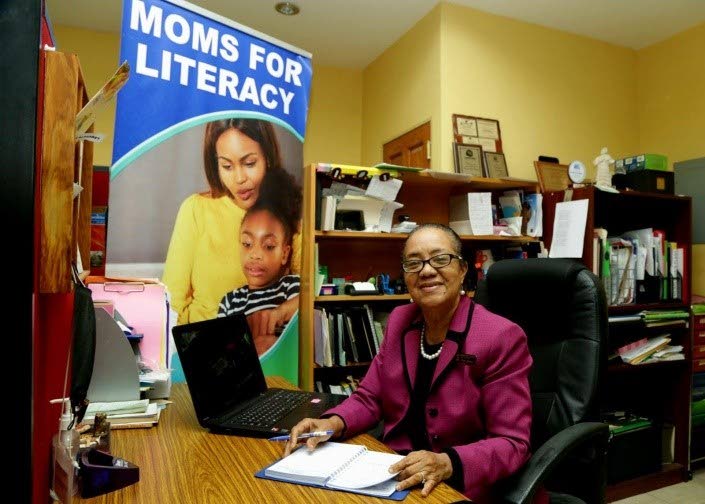According to the Australian Dyslexia Association, “Dyslexia is estimated to affect some 10% of the Australian population.” This squarely puts...
Vous n'êtes pas connecté
- English
- Français
- عربي
- Español
- Deutsch
- Português
- русский язык
- Català
- Italiano
- Nederlands, Vlaams
- Norsk
- فارسی
- বাংলা
- اردو
- Azərbaycan dili
- Bahasa Indonesia
- Հայերեն
- Ελληνικά
- Bosanski jezik
- українська мова
- Íslenska
- Türkmen, Түркмен
- Türkçe
- Shqip
- Eesti keel
- magyar
- Қазақ тілі
- Kalaallisut ; kalaallit oqaasii
- Lietuvių kalba
- Latviešu valoda
- македонски јазик
- Монгол
- Bahasa Melayu ; بهاس ملايو
- ဗမာစာ
- Slovenščina
- тоҷикӣ ; toğikī ; تاجیکی
- ไทย
- O'zbek ; Ўзбек ; أۇزبېك
- Tiếng Việt
- ភាសាខ្មែរ
- རྫོང་ཁ
- Soomaaliga ; af Soomaali
Rubriques :
 Maroc - NEWSDAY.CO.TT - A la Une - 21/Aug 07:06
Maroc - NEWSDAY.CO.TT - A la Une - 21/Aug 07:06
Understanding dyslexia: Why is my child not learning?
DR MARGARET NAKHID-CHATOOR Part 1 THE OPENING of school is around the corner and many parents have been referred to me, worried about the child that was not promoted, who is failing every test and who seems not to be interested in school because of problems with reading, writing and spelling. Can it be dyslexia? Know it, learn about it – as your child may have a problem with phonological awareness skills. On the scientific side, dyslexia is a neurological disorder that often runs in families – genetic and inherited; it is not caused by a fall or lash to the head or the other reasons that some parents think of when a child cannot learn, seeking answers. The persistent parent who is struggling for solutions has been told to get their child tested for learning disabilities, but where do they go? The SSSD (Student Support Services Division of the Ministry of Education) has a backlog for testing of students with learning challenges and private assessments are costly. What can happen here? Parents, the first step is to understand why your child cannot learn in the way that all other children seem to be learning. Many educational psychologists who do the testing are themselves not too familiar with dyslexia, which is a must in any assessment and evaluation report. So, what is really happening to your child? Firstly, be aware that the executive functioning of the brain is affected by dyslexia – and this includes a range of cognitive processes such as planning, memory and attention. Your child may have difficulties with the following: Language processing: Not being able to understand and follow instructions at home or in class. Memory: Working memory is affected and this is crucial for holding and understanding information. Your child may be lost in class after just a few minutes of teaching and may not be able to understand what the teacher is saying, process what is being read or said by the teacher, or problem-solve exercises. Many children get frustrated and begin to disrupt the class, escape to the bathroom or go into their own fantasy world and lose focus. Decoding and comprehension: Words! Words! Words! Many children struggle with decoding or breaking down simple words and this often leads to difficulties in reading comprehension and understanding and retaining information. You may go through spelling and other work with them, they seem to know it, but then they soon forget what was done after just a few hours or minutes. Time management: Children with learning challenges need extra time for reading and processing information, more than the average pupil. Because of this, they seldom complete their homework, cannot finish class tests and do not meet their deadlines. Emotional regulation: As you can well imagine, the lack of understanding of school work and assignments and the frustration that comes with this can affect them big time, if you do not understand what is happening with the child who cannot learn. It often leads to anxieties, a reluctance to attend school, inventing many excuses and being sick all the time. Their self-confidence decreases as they grow older, especially if nothing is done or any interventions made to address their learning challenges. What can teachers do to help these children? Teachers, as the new term begins, there will be children in your classroom who are dyslexic. Do not label them as lazy, not trying hard enough or force them to read and write, when they cannot understand what they are doing or exactly why they cannot learn. Please understand them, give them the accommodations that they need, and/or refer them to the Dyslexia Association (624-5869) for further help and remedial lessons. Improving executive functioning in individuals with dyslexia involves strategies that cater to their unique learning needs which only a trained remedial tutor can do. However, some effective strategies that you can implement include: * The use of visual aids like charts, diagrams, and colour-coding to help them with planning and organising their work. It is important to break down tasks into smaller tasks as many different instructions can be overwhelming for them. * Establish consistent routines which can provide structure and predictability. Repeat. * Use technology and multisensory instructional methods to engage their multiple senses, reinforce learning and improve information retention. There are many apps and software designed to assist with improving executive functions. * Focus on one task at a time. Do not confuse them with too many instructions at a time. This can help maintain concentration and reduce their cognitive load. Parents, you too can play a crucial role in supporting your child with dyslexia at home by creating a supportive environment that fosters self-esteem and a love for learning. Do not tell them that they are not trying hard enough or compare them with their siblings. Oftentimes they are confused and blame and hate themselves for being "different" than other children. Early intervention is key here so act early to provide timely support. Search the internet for programs and explore tools like speech-to-text software, audiobooks and text-to-speech programs to help with reading and writing challenges. Help your child by providing them with checklists for tasks and setting regular routines. Patience. Patience. You must understand that children with dyslexia learn at their own pace and require your support. They do not need your shouts and frustrations targeted at them. Seek professional help which can provide further assistance and resources. The video done by CNC3 – Thinking Differently: Managing Neurodiversity – Episode 4, YouTube, is helpful in identifying the challenges. Part 2 will deal with the link between learning disabilities and why some children choose criminal behaviours as a coping mechanism. Dr Margaret Nakhid-Chatoor is a psychologist/educator and certified dyslexia screener and consultant The post Understanding dyslexia: Why is my child not learning? appeared first on Trinidad and Tobago Newsday.
Articles similaires
Nobody listening to we! Who is we?
Part 2 DR MARGARET NAKHID-CHATOOR IT MUST have been more than 20 years ago when I encountered Lucas (not his real name), a nine-year-old boy who was...
UNHCR donates school kits to Venezuelan children
The UN Refugee Agency (UNHCR) distributed education kits on August 30, to children registered under the Migrant Registration Framework who have been...
Curiosity killed the cat
Kanisa George AS WE reach a certain stage in our lives, our perchance for active learning can sometimes start to diminish. And, of course, when you...
Curiosity killed the cat
Kanisa George AS WE reach a certain stage in our lives, our perchance for active learning can sometimes start to diminish. And, of course, when you...
‘For Us Is Our Religion And For You Is Your Religion’ (Qur’an 109:6) – OpEd
How can believers in one religion understand those parts of another religion that seem the opposite of their own religion? We know how Christian...
Dangerous world for girls
Dr Gabrielle Jamela Hosein THE TRANSITION from childhood to adolescence for girls is gendered, and introduces concerns, risks and knowledge for which...
A call for disability inclusion
Stacey Samuel-O'Brien DISABILITY Pride Month is celebrated in some cities in the US during the month of July. July was selected because the Americans...
Moms For Literacy: Teach children to read with pleasure not pressure
ON International Literacy Day 2024, which is observed on September 8, is reminding parents to let their children read with pleasure not...
Hanif Benjamin: Poverty driving teens to crime
CLINICAL traumatologist and president of the Centre for Human Development Ltd Hanif Benjamin says poverty is the main driving force behind teens'...
Les derniers communiqués
-
Aucun élément







